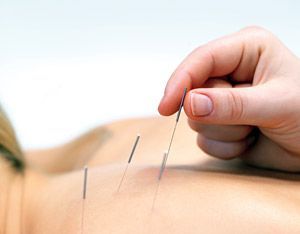The most important relationship I seek to nurture in the treatment room is the one a patient has with their own body. We live in a culture that teaches us to override pain, defer to outside authority, and push through discomfort. Patients often arrive hoping I can “fix” them, but the truth is, we can’t do the work for them. We can offer guidance, insight and support, but healing requires their full participation.
Discovering What Makes You Unique
True or false: Everyone who can benefit from acupuncture gets acupuncture.
True or false: Everyone who seeks acupuncture finds the right acupuncturist.
True or false: Everyone who gets acupuncture realizes its full potential.
Three for three, right? "F" across the board.
So, what's the deal? Why, despite an evident growing interest in acupuncture, do so many people struggle to find their way there—and further, find their way to an acupuncturist who helps them discover what acupuncture can really do?
There's a weird cycle happening. On the one hand, acupuncture is popping up everywhere. All the morning TV shows have welcomed acupuncturists to their sets. Every big newspaper, including The New York Times, The Washington Post and The Wall Street Journal, has allocated column inches to acupuncture. The popular women's magazine Shape recently declared, "Every busy woman should try acupuncture." Earlier this year I was asked to start blogging about acupuncture for The Huffington Post. Heightened interest in acupuncture is undeniable.
That's a great thing. However, this unprecedented level of interest in acupuncture has meant that people are starting to understand acupuncture better than ever before.
Seeing the world through the lens of acupuncture inevitably causes people to rethink many of the supposed truisms they've held dear their whole lives. People are coming to view health as a process rather than a one-shot, quick-fix deal. And as the notion of health as an ongoing journey becomes more intuitive, people crave a deeper level of information about the healthcare practitioners they invite along on their quests.

Unfortunately, it has been extremely difficult for these better-educated, rightfully picky consumers to make sense of the wide variety of experiences and attitudes embodied by the acupuncture profession.
Practice What We Preach
As acupuncturists, we spend a lot of time educating people on the value of individuality. Each person's underlying pattern of disharmony is unique, and acupuncture's ability to address this reality is what distinguishes it from biomedicine and makes it so effective.
In our clinics, most of us do a great job explaining and wholly embracing this concept. It's why we inquire about our patients' emotional health when they come in for shoulder pain. It's why we want to know what they eat for breakfast and whether they think exercise means walking the dog or training for an Ironman. Details that reveal who a person is beyond their chief complaint are integral to delivering effective acupuncture treatments.
We all know this. However, when it comes to embracing our own individuality as acupuncturists, we often leave out the good stuff.
Most of the information that gets shared in standard acupuncturist directories, and often on practitioners' own websites, means very little to someone seeking acupuncture, especially a first timer. When choosing an acupuncturist, people want more than a laundry list of facts and accomplishments. It's not that facts and accomplishments are unimportant. We've all worked hard for our degrees, licenses and specializations, and many prospective patients find significant comfort in credentials. But with a modality like acupuncture, they're not enough.
Although it's becoming more popular and better understood, acupuncture is still regarded with skepticism by the general public. For many people, coming to acupuncture is either a leap of faith or a last resort. It takes them out of their comfort zone in a way that visiting a medical doctor, chiropractor or massage therapist does not.
For the majority of the population, just getting to the point of searching for an acupuncturist requires overcoming some degree of uncertainty and doubt. The last thing they need when they begin reviewing individual practitioners is to be confronted with confusing or vague information that makes it virtually impossible to distinguish one acupuncturist from another.
When deciding on an acupuncturist, people want information that is clear and consistent. They want to know who you are, as a professional and a person, and how you differ from other acupuncturists. They want information they can relate to.
Here are some questions that acupuncture seekers are likely to have about an acupuncturist:
- Why did you become an acupuncturist?
- What distinguishes you from other acupuncturists?
- What do you enjoy most about your work?
- What is the biggest misconception you hear about acupuncture?
- How do you stay healthy in your own life?
While the same endless list of specialties, or treatment techniques or letters after a name, could be cut and pasted on nine out of 10 acupuncturist profiles, answers to the above questions are dramatically different from acupuncturist to acupuncturist. This is the stuff that matters to people who are about to entrust their health to you.
The ability to navigate the vast differences among acupuncturists allows people to make better-informed decisions about who to involve in their health process. This, in turn, improves the overall success rate of acupuncture—and your confidence level and professional satisfaction—because more people are matched up with acupuncturists who suit their needs. Moreover, better outcomes from acupuncture causes more people to share their success stories, which ultimately leads to more people getting acupuncture.
Rather than trying to be everything to everyone, or cutting each other down for our differences, let's come together and celebrate the fact that we are not created equal. This will be enormously beneficial to people on all sides of the acupuncture equation, givers and receivers alike.


